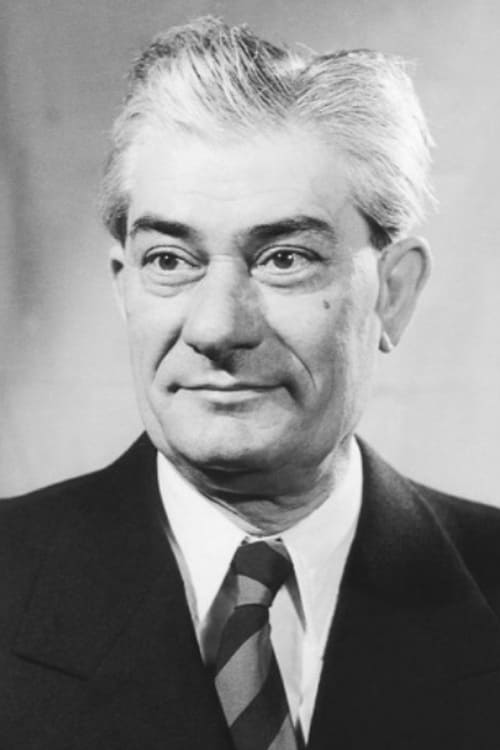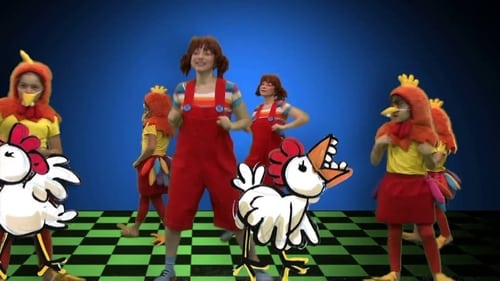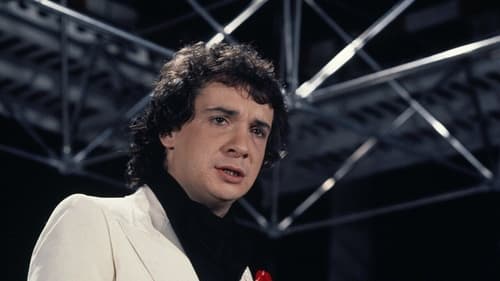Marta Ferjet Fog (1954)
Gênero : Romance, Comédia
Runtime : 1H 18M
Director : Béla Gaál
Sinopse
An engineer from the city inherits an old, run-down mill, which is adjacent to a castle belonging to a young, attractive and spoiled woman named Marta - for who he falls in a heartbeat. Produced in 1941.
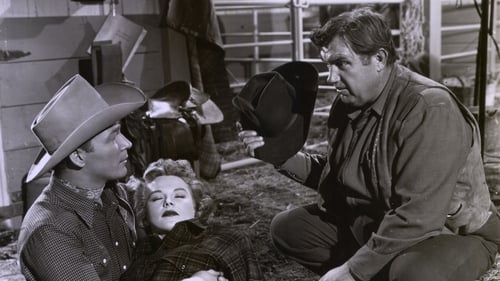
On vacation at his ranch, western actor Roy quickly finds himself involved with a horse rustling operation and a boy ward of one of the rustlers, leading to the kidnapping of Roy's trick horse Trigger by the gang with a demand for ransom.
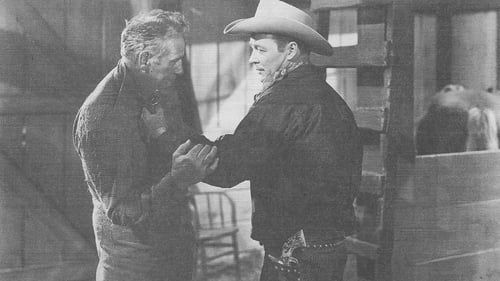
A ranch owner turns his place into a home for boys who have lost their fathers in World War II. His evil female lawyer covets the ranch and uses a gang of local toughs, a pack of killer dogs, and a phoney rancher's beneficiary to get it. U.S. Marshal Rogers opens an investigation when the rancher is killed.
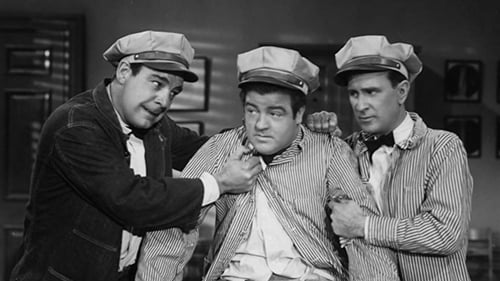
Molly, her brother, Slats, and his pal, Oliver, are taxi dancers at the Miramar Ballroom. As a publicity stunt, Slats plants an article about Molly claiming her ambition is to earn enough money to attend staid, all-girl Bixby College. Bixby's progressive dean offers Molly a scholarship. Molly accepts on the condition that Slats and Oliver come along too as campus caretakers. But the pompous Chairman threatens to foreclose on the school's mortgage if Molly isn't expelled. Together, the trio, with the help of some new friends, concocts a scheme to raise enough money to save the school. The plan involves a bet on the Bixby basketball team, which is playing in a game rated at 20 to 1 by the local bookie. But the bookie has other plans for their dough and hires a group of ringers to step in for the opponents. All is not lost, at least while Oliver has the chance to turn things around for his friends-one way or another.
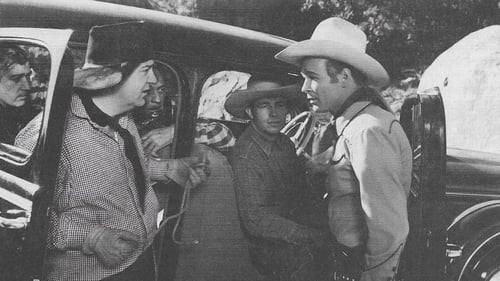
Roy Rogers, Smiley Burnette and the Sons of the Pioneers go undercover to help Texas Governor Russell Hicks stop World War II Axis sympathizers from blowing up U.S. warehouses.
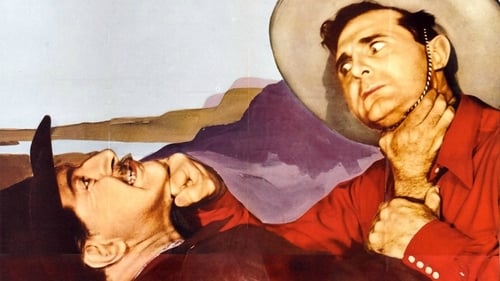
In Old Wyoming, a gang is plundering stagecoaches of shipped currency and a crusading newspaper editor is trying to get the local marshal replaced, because of his apparent failure to catch the gang, which seems to disappear into thin air after every robbery. The situation escalates when one of the stage drivers is mortally wounded; so the marshal sends for his friends, the Range Busters, to help him catch the criminals. Meanwhile, even the marshal's fiancee, the editor's daughter, turns against him in favor of an aggressive agitator for law and order - who secretly is leading the robber gang.
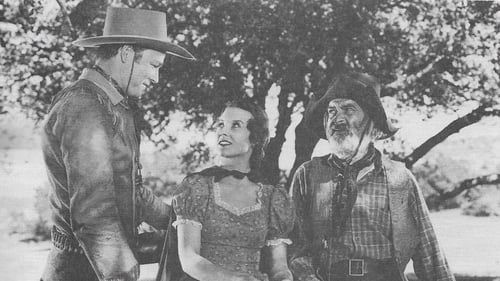
It's 1860 and the old Spanish land grants are being surveyed. Montez is after part of Don Regas' rancho and gets the surveyor to alter the boundary. But Don Regas still has the original grant written on a bandanna. Montez sends Indians after it but Bill Cody and Gabby fight them off and a wounded Gabby unknowingly ends up with the missing million dollar deed wrapped around his arm for a bandage.
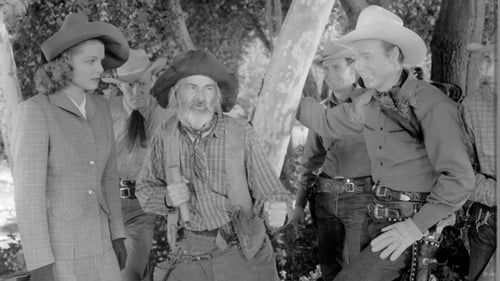
Fur theives are looting the traps on the ranch where Roy is foreman and they have murdered one of Roy's friends.
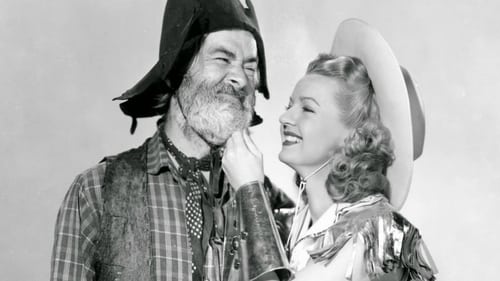
A singing ranch foreman (Roy Rogers) and his friend (George "Gabby" Hayes) urge a chorus-girl heiress (Dale Evans) not to sell the property.

Larry the Cucumber's vision of the future includes automated robotic hosts telling jokes with random punch lines and musical numbers in which the performers and themes are chosen entirely by chance. As Bob the Tomato quickly points out, the jokes of the future aren't very funny because they don't make sense. Worse, technical malfunctions in the Ventrilomatic hosts actually promote emotional instability. Nonetheless, Bob admits that Larry's vision of the future contains some very cool adaptations of classic songs like Gilbert and Sullivan's fast-talking "Modern Major General" and Binky the Aardvark's solo performance of Mozart's The Barber of Seville. Larry's vision of the future also includes an amusing animated short about greed called "Lunch." Junior Asparagus calls Bob and Larry back to the present with a final song celebrating God's unconditional love.
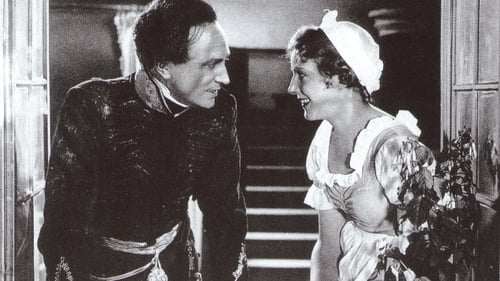
In 1812, during the French period, large parts of Germany are occupied by the troops of Napoleon. Several paramilitary Freikorps units battle the French forces, among them the Black Brunswickers led by the 'Black Duke' Frederick William of Brunswick-Wolfenbüttel. After the War of the Fifth Coalition, the Black Hussars are pursued by Napoleon throughout the country, but frequently take refuge with the noble-minded German people.
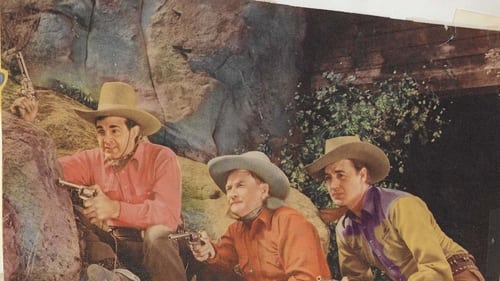
The Range Busters are investigating a gold robbery from the Denver Mint in a supposedly deserted ghost town, but they soon find they're not the only town resident with a nose for gold.

Cheyenne Jones comes to the Blue River Ranch and asks for a job as a cowpuncher. Actually, Jones's real name is Buck McCloud and he's the new owner of the spread, having inherited it when his uncle died a year earlier. He's roaming the range incognito while trying to identify who's behind the cattle rustling that is afflicting his new business.

The aviation company for which Ricardo works gives a secretary a trip to Peru.

Soviet musical film-concert directed by Boris Barnet. Filmed in 1952 at the Kiev Film Studio.

"Marynarka..." is a story of a painter who went on a cruise on a navy ship, framed by a musical film. It features Anna German, Piotr Szczepanik and the Szczecin band Filipinki.

Join Ozzy Octave and his friends as they sing and dance to their favourite nursery rhymes. Some of the happening songs include 'Polly Put the Kettle On', 'Michael Finnigan', 'Jack and Jill', 'Pop Goes the Weasel' and 'Oranges and Lemons'.

Casimê Celîl was born into a Yezidi Kurdish family in 1908, in a village called Kızılkule, located in Digor, Kars. The village and family life, which he longed to remember throughout his life, ends with the massacre they endured in 1918. During his long road to Erivan, Armenia, he lost all his family members. Left all alone, Casim was placed into an orphanage and was forced to change his name. To remember who he was and where he came from, every morning he repeated the mantra “Navê min Casim e, Ez kurê Celîlim, Ez ji gundê Qizilquleyê Dîgorê me, Ez Kurdim, Kurdê Êzîdî me”, which translates to: “My name is Casim, I am the son of Celîl, I come from the village of Kızılkule in Digor, I am a Kurd, and I am Yezidi”. He clings to every piece of his culture he can find, reads, and saves whatever Kurdish literature or art he comes across. As the year’s pass, Casim finds himself with an impressive collection of Kurdish culture and history.

A partial remake of and using footage from 1941's "Rawhide Rangers" this Western short is about a ranger who pretends to turn outlaw in order to track down the gang who killed his brother, also a ranger.




